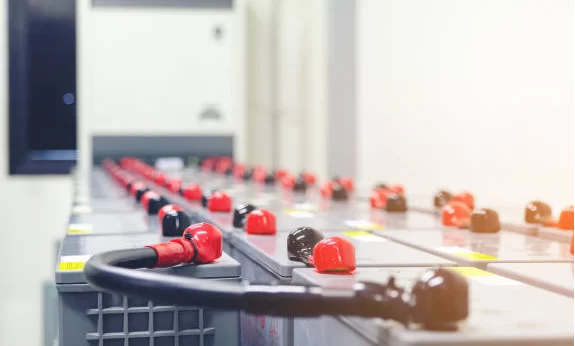Understanding BESS Battery Energy: The Future of Power Storage
In today’s fast-paced world, energy storage has become a critical component of our energy systems. One of the most promising innovations in this area is BESS battery energy technology. BESS, or Battery Energy Storage Systems, provides efficient, reliable, and flexible solutions for storing electricity generated from renewable sources. As we delve into the advantages and applications of battery energy, you’ll see why it’s a game-changer in the quest for sustainable energy.
BESS battery energy systems are designed to store electrical energy for later use. These systems typically use lithium-ion batteries, though other technologies like flow batteries and lead-acid batteries are also utilized. By capturing energy during peak production times, such as sunny or windy days, BESS can release that energy when demand is high, ensuring a balanced and stable energy supply.

The Advantages of BESS Battery Energy
- Enhanced Grid Stability
One of the main benefits of BESS energy is its ability to enhance grid stability. As more renewable energy sources are integrated into the power grid, fluctuations in energy supply can occur. BESS helps to mitigate these fluctuations by storing excess energy and providing it back to the grid when needed, making the energy supply more reliable.
2.Cost Savings
Investing in BESS energy can lead to significant cost savings over time. By storing energy during low-cost periods and using it during peak demand times, users can take advantage of time-of-use pricing. This not only reduces electricity bills but also helps in managing energy resources more efficiently.
- Support for Renewable Energy Integration
The shift towards renewable energy sources like solar and wind has created a need for effective storage solutions. BESS battery energy systems are perfect for this role. They allow for the storage of energy generated from renewable sources, making it available whenever it’s needed, thereby supporting a more sustainable energy ecosystem.
- Backup Power Supply
In times of power outages or emergencies, BESS battery energy systems can provide backup power. This is particularly important for critical infrastructure, such as hospitals and data centers, where uninterrupted power supply is essential. By integrating BESS into these systems, businesses can ensure operational continuity during unforeseen events.
- Environmental Impact
BESS battery energy systems have a lower environmental impact compared to traditional fossil fuel-based energy sources. By promoting the use of renewable energy and enabling energy efficiency, BESS plays a vital role in reducing greenhouse gas emissions and supporting global efforts to combat climate change.
Applications of BESS Battery Energy
Residential Use
Homeowners can benefit greatly from BESS battery energy systems. By pairing these systems with solar panels, homeowners can store excess energy generated during the day and use it at night or during cloudy days. This not only maximizes solar energy usage but also enhances energy independence.
Commercial and Industrial Use
Businesses can leverage BESS for various applications, from peak shaving to load shifting. By using stored energy during peak demand, businesses can reduce their energy costs and improve their bottom line. Furthermore, BESS can help large facilities meet their sustainability goals by integrating more renewable energy into their operations.
Utility-Scale Solutions
Utilities are increasingly adopting BESS battery energy systems to improve grid resilience and stability. Large-scale BESS installations can provide essential services, such as frequency regulation and demand response, helping to maintain the balance between energy supply and demand.
Electric Vehicles
The rise of electric vehicles (EVs) has also contributed to the growth of BESS technology. EVs can be integrated with home energy systems to act as mobile energy storage units. This means that EV owners can charge their vehicles during off-peak times and potentially use that energy to power their homes or sell it back to the grid.
How to Choose the Right BESS Battery Energy System
When considering a BESS battery energy system, several factors should be taken into account:
- Capacity and Power Rating
Evaluate the storage capacity and power rating of the system to ensure it meets your energy needs. The capacity determines how much energy can be stored, while the power rating indicates how much energy can be discharged at once.
- Cycle Life
Look for systems with a long cycle life, which refers to the number of charge and discharge cycles the battery can undergo before its capacity significantly declines. Longer cycle life means better longevity and lower replacement costs.
- Warranty and Support
Consider the warranty offered by the manufacturer and the availability of customer support. A solid warranty can provide peace of mind regarding your investment.
- Compatibility with Existing Systems
Ensure that the battery energy system you choose is compatible with your existing energy systems, such as solar panels or other renewable sources.
Conclusion
The rise of battery energy technology represents a significant step forward in the quest for sustainable energy solutions. By offering enhanced grid stability, cost savings, and environmental benefits, BESS systems are becoming essential components of modern energy systems. Whether for residential, commercial, or utility-scale applications, BESS technology is paving the way for a cleaner, more reliable energy future.
As we continue to explore and invest in these systems, the transition to renewable energy becomes not only possible but increasingly practical. Embracing battery energy is a proactive approach towards energy independence and environmental responsibility. The future of power storage is bright, and BESS is at the forefront of this revolution.
